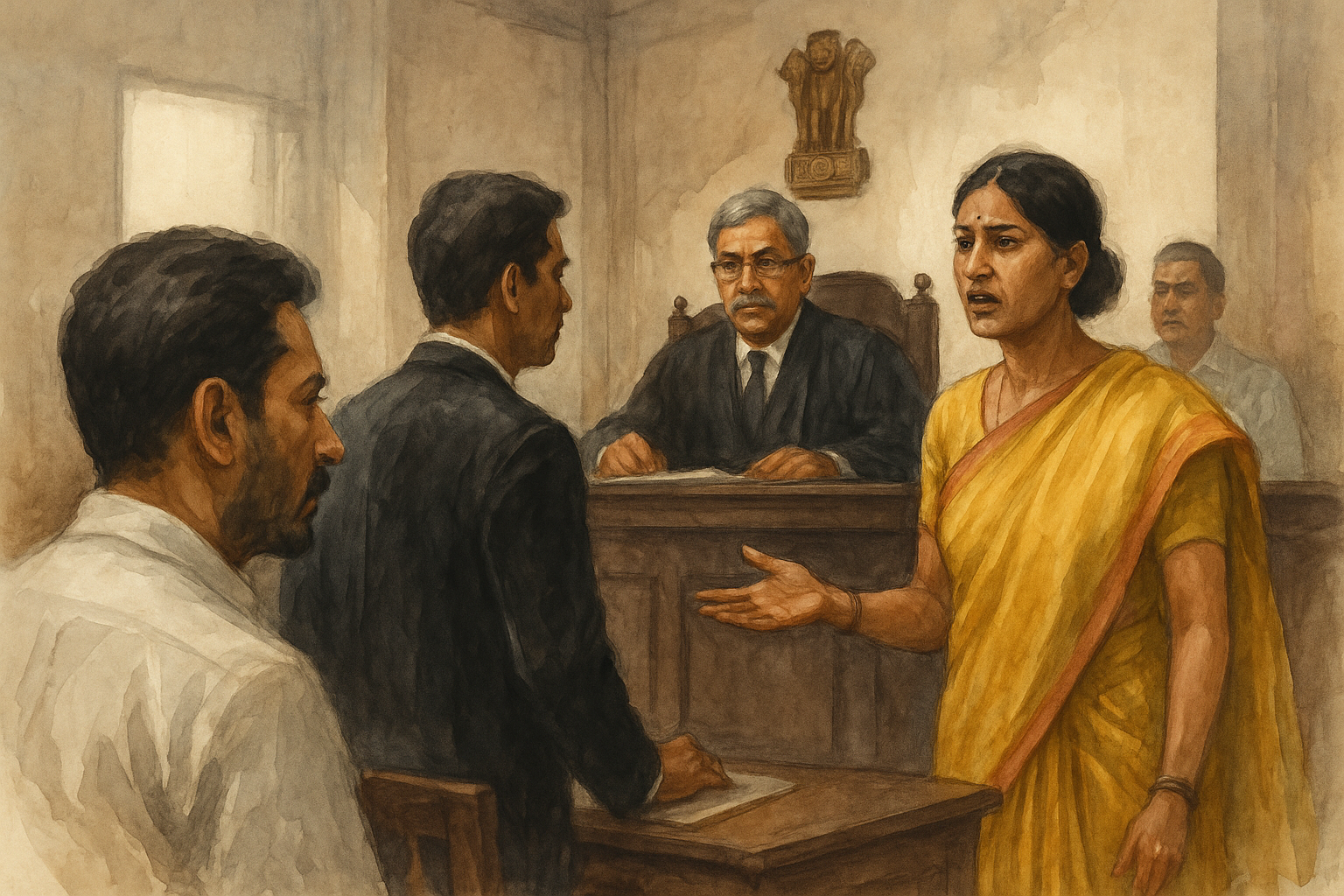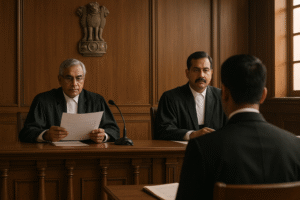Simplified Explanation of the Judgment
In a recent case, the Patna High Court dealt with a dispute involving the imposition of GST on a construction company that had entered into a Development Agreement prior to the introduction of GST laws in India.
The petitioner, a private construction company based in Muzaffarpur, Bihar, challenged an assessment order passed by the State Tax Officer, Muzaffarpur. This order demanded GST amounting to ₹4.61 crores, including interest and penalties, under the Bihar Goods and Services Tax (BGST) Act. The demand arose due to construction services provided by the company under a development agreement signed in 2014 — before the GST regime came into effect on 1 July 2017.
The petitioner also challenged two GST notifications that extended the deadline for tax recovery for the financial year 2018-19. However, the court found these notifications irrelevant to the case, as the tax order in question had already been issued within the permitted time frame.
The core issue revolved around whether GST was applicable to the construction services delivered by the builder to the landowner under a development agreement where land rights were transferred before GST was enforced. The petitioner contended that since the land had already been transferred before July 2017, and the flats were handed over after project completion in December 2018, no GST could be imposed on the transaction.
However, the court examined the terms of the development agreement and clarified that there was no transfer of land ownership through it. Instead, it granted only a license to the builder for undertaking construction. The court emphasized that the builder gained ownership rights only after completing the project, and that the flats handed over to the landowner amounted to a supply of construction services — taxable under GST.
It was also argued by the petitioner that tax liability on the transfer of development rights was introduced only through a 2019 notification and hence should not apply retroactively. The court rejected this, clarifying that the tax was levied not on the transfer of development rights but on construction services, which were already taxable under the GST law since 2017.
The petitioner further relied on a Supreme Court judgment in the case of Balbir Singh Maini, which dealt with income tax issues in the context of an unregistered development agreement. The High Court held that this precedent was inapplicable because the facts and legal contexts were entirely different. In the present case, the transaction clearly fell under the definition of a taxable supply of services.
Referring to various statutory notifications, the court reaffirmed that construction services provided in return for development rights are taxable under the GST regime unless the entire consideration is received after the issuance of a completion certificate. In this case, it was found that consideration (in the form of land development rights) had been received before completion.
Finally, the court refused to invoke its extraordinary jurisdiction under Article 226 of the Constitution because the petitioner had an alternative remedy available through the statutory appellate process under the GST law. Thus, the writ petition was dismissed.
Significance or Implication of the Judgment
This judgment reinforces the principle that GST is applicable to construction services rendered under development agreements, even if such agreements were executed before the GST regime began. It clarifies that receiving development rights before the issuance of a completion certificate triggers GST liability under reverse charge.
For real estate developers, this judgment sets a clear precedent regarding the taxability of services delivered to landowners under barter-like arrangements. Government authorities may also use this ruling to defend GST assessments against similar challenges. Importantly, the ruling confirms that the timeline for assessing tax liabilities must align with statutory provisions and not necessarily depend on contested notifications.
Legal Issue(s) Decided and the Court’s Decision with Reasoning
- Whether the assessment order was time-barred under Section 73(10) of the CGST Act?
- Court’s finding: No. The order was passed on 30.11.2023, within three years from the extended due date for filing the 2018-19 annual return (i.e., 31.12.2020).
- Whether the development agreement executed before GST regime excluded the transaction from GST?
- Court’s finding: No. The development agreement only gave license to construct; land ownership did not transfer. Taxable services were rendered after GST came into force.
- Whether construction services delivered in exchange for development rights attract GST?
- Court’s finding: Yes. Under Notification No.11/2017 and subsequent clarifications, such services are taxable under SAC Code 9954.
- Whether Notification No.04/2019 (introducing GST on development rights) had retrospective effect?
- Court’s finding: No retrospective effect was applied. The petitioner was taxed for construction services, not development rights.
- Should the writ be entertained despite alternate appellate remedy?
- Court’s finding: No. The petitioner had a statutory appeal remedy which was not exhausted.
Judgments Referred by Parties
- Commissioner of Income Tax v. Balbir Singh Maini, (2018) 12 SCC 354
- Govind Saran Ganga Saran v. Commissioner of Sales Tax, 1985 Supp SCC 205
Judgments Relied Upon or Cited by Court
- Prahitha Construction Pvt. Ltd. v. Union of India, 2024 SCC OnLine TS 3994 (Telangana HC)
- Super Poly Fabriks Ltd. v. CCE Punjab, (2008) 11 SCC 398
- CWJC No.18149/2023, M/s Adarsh Construction v. State of Bihar
- CWJC No.18168/2023, M/s Radhika Packing and Printers v. State of Bihar
Case Title
M/s Shashi Ranjan Constructions Pvt. Ltd. v. Union of India & Others
Case Number
CWJC No. 6700 of 2024
Coram and Names of Judges
Hon’ble Mr. Justice Rajeev Ranjan Prasad
Hon’ble Mr. Justice Ashok Kumar Pandey
Names of Advocates and Who They Appeared For
- Mr. D.V. Pathy, Sr. Advocate – for the Petitioner
- Dr. Krishna Nandan Singh, ASGI; Mr. Anshuman Singh, Sr.SC (CGST); Mr. Shivaditya Dhari Sinha; Mr. Alok Kumar – for Union of India
- Mr. Vikash Kumar, SC-11 – for the State of Bihar
Link to Judgment
15c7dac9-be22-4b6f-8886-d1d19d007b6c.pdf
If you found this explanation helpful and wish to stay informed about how legal developments may affect your rights in Bihar, you may consider following Samvida Law Associates for more updates.







